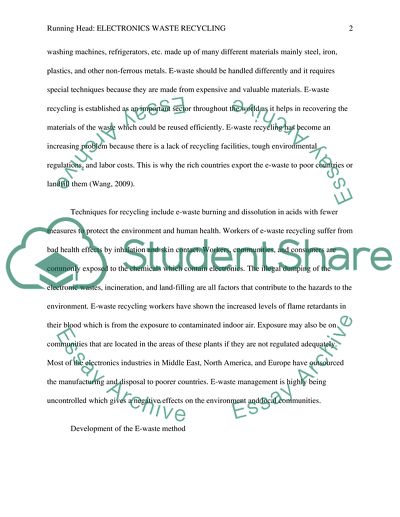Cite this document
(Electronics Waste Recycling System Assignment Example | Topics and Well Written Essays - 2750 words, n.d.)
Electronics Waste Recycling System Assignment Example | Topics and Well Written Essays - 2750 words. Retrieved from https://studentshare.org/environmental-studies/1827060-negotiated-studied-sustainable
Electronics Waste Recycling System Assignment Example | Topics and Well Written Essays - 2750 words. Retrieved from https://studentshare.org/environmental-studies/1827060-negotiated-studied-sustainable
(Electronics Waste Recycling System Assignment Example | Topics and Well Written Essays - 2750 Words)
Electronics Waste Recycling System Assignment Example | Topics and Well Written Essays - 2750 Words. https://studentshare.org/environmental-studies/1827060-negotiated-studied-sustainable.
Electronics Waste Recycling System Assignment Example | Topics and Well Written Essays - 2750 Words. https://studentshare.org/environmental-studies/1827060-negotiated-studied-sustainable.
“Electronics Waste Recycling System Assignment Example | Topics and Well Written Essays - 2750 Words”, n.d. https://studentshare.org/environmental-studies/1827060-negotiated-studied-sustainable.


